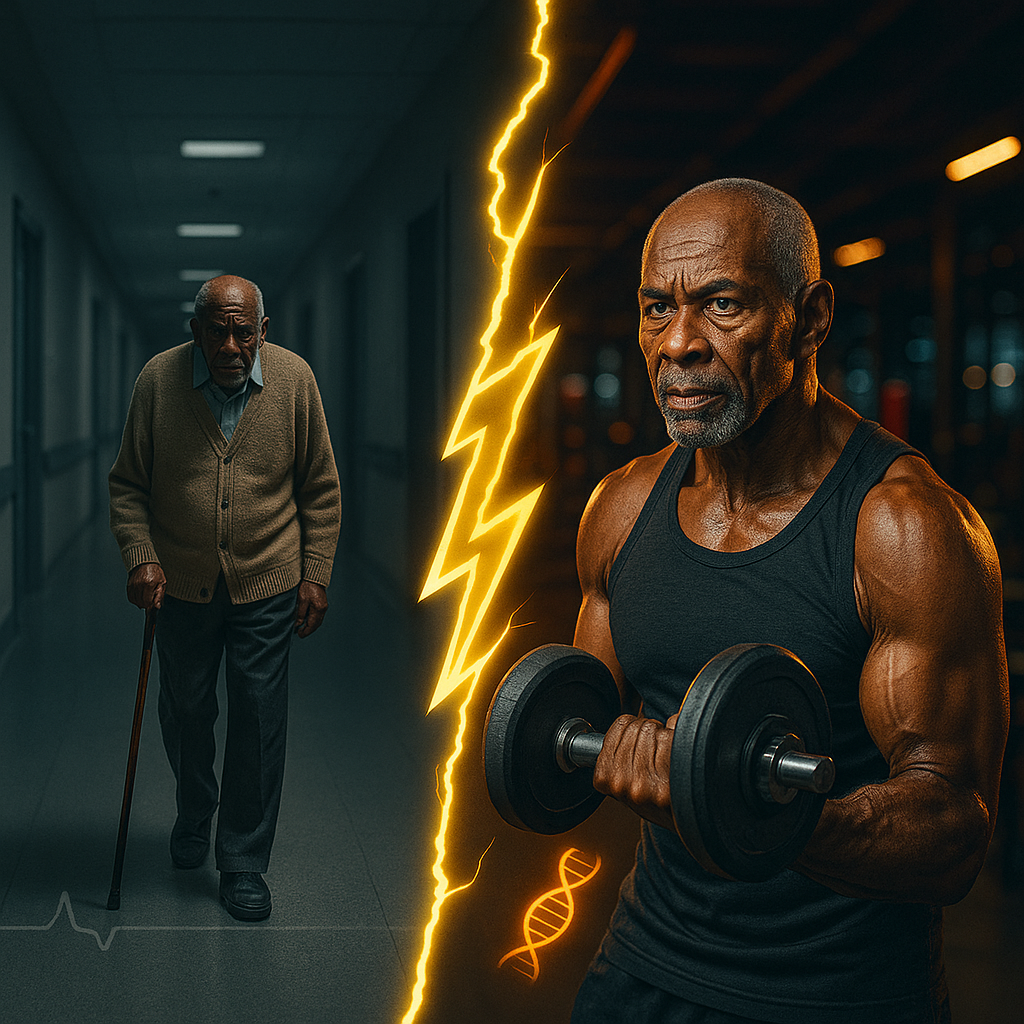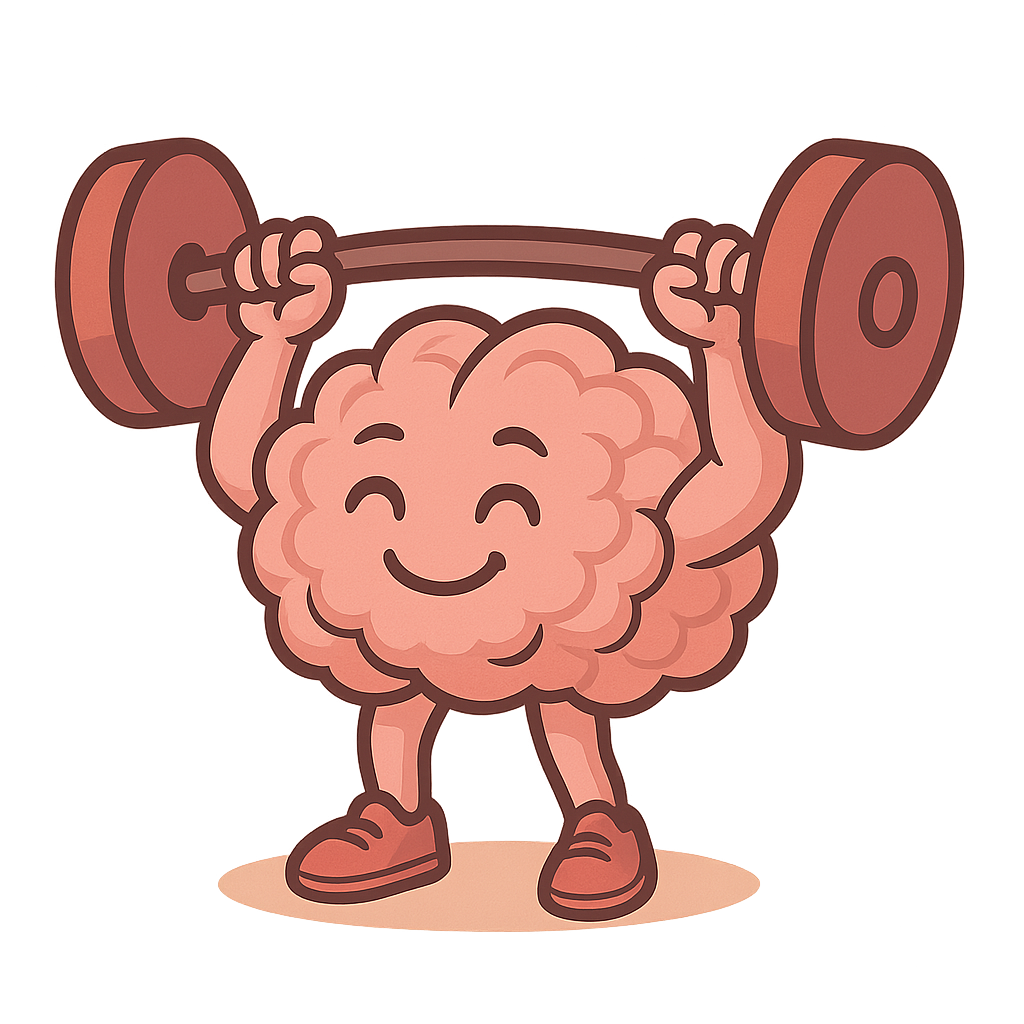
The internet will have you believe that it's about the perfect diet, or this essential supplement, or about running until you're in your 80s. But if you had to pick a silver bullet, lifting weights is the single greatest thing anyone can do to improve their longevity.
When I say "lifting weights," I mean resistance training — that's the progressive overloading of muscles using resistance — whether that's weights, machines, or your own bodyweight. In other words, I'm talking about using your muscles to lift or move a weight, and making that movement harder over time. And when I say "longevity," it's not just lifespan, it's "healthspan": the years you live fully — physically, mentally, and emotionally healthy.
The Numbers Don't Lie
The evidence for lifting is overwhelming:
- Any amount of lifting reduced all-cause mortality risk by 15%;
- Lifting for 60 minutes a week reduced that risk by 27%.
That's more than risk reductions from:
- Adequate sleep quality (12%)
- The Mediterranean diet (21%)
- Going from 3 drinks a day to none (24%).
Resistance training also:
- Increases muscle mass
- Improves bone density
- Enhances sleep quality
- Reduces the risk of cardiovascular disease, cancer, and metabolic disease.
Resistance training changes the game for mental health too. Lifting weights improve cognitive performance both in healthy and cognitively impaired adults. It also significantly reduces depressive and anxiety symptoms — and it's more effective the older you get.
I believe that lifting is one of the most significant — if not the most significant — thing everyone, especially high-performers, can do to level themselves up.
Why should high-performers care?
Too many of us high-performers fall prey to sacrificing exercise for work. But lifting weights is a game-changer for your performance, both in the workplace and beyond.
First, a career is a lifetime marathon. The brutal truth is that your career longevity depends on physical resilience that only resistance training can provide. Lifting is an essential tool to ensure you have steam to keep pushing.
Second, in a landscape where most high-performers underinvest, lifting and exercising regularly is a competitive advantage. Your competitors are wearing down while you're building up. And the confidence from lifting will arm you with physical presence and confidence, both into the workplace and beyond.
Third, the discipline you develop in adhering to a lifting regimen will translate into a more efficient performer at work and outside of it.
Every rep is a vote for your future self—for the version of you still performing at peak capacity when others have long since declined. Every session is a deposit in your "well-being" bank account that will continue paying dividends decades from now.
I'm convinced, what should I do next?
Start simple:
- Where possible, find a trainer who will coach you through basic movements you need to learn to get an effective workout. If you can't do that, YouTube and Instagram are great places to start.
- Commit to at least two full-body sessions a week lasting around an hour. That includes warm-ups (light running on a treadmill or elliptical) and 4-6 movements.
- Focus on foundational movement patterns:
- Hip hinge (deadlift variations);
- Squat pattern (even if just bodyweight initially);
- Horizontal push (push-up or chest press);
- Vertical pull (pull-up or lat pulldown); and
- Carry (farmer's walks with weights).*
- Don't know what workout program to follow? Just try one of the many freely available workouts online on Reddit or elsewhere. Jeff Nippard specifically has a minimalist training routine for free that requires going to the gym twice a week.
- Every week, increase your reps, weight lifted, or improve your form, to make the exercise harder on your muscle.
- Go gentle on increasing weight. Master form first, then reps, and then think about increasing the weight you lift.
- After 8-12 weeks, assess your progress, and evaluate whether your training routine works for you or needs to change.
Of course, this is a simplified explanation of principles to progress your lifting, but it's a good place to start.
Will you be a high-performer who burns bright but out quickly? Or will you be the one still operating at full capacity when your experience and wisdom are at their most valuable?
Incorporate lifting into your life and you'll see your physical and mental health transform. The weights are waiting. Your future self is watching.
Signing off,
~Your guide, not guru, Harish.
*Full disclosure: I don't train farmer's walks, but I do believe that they can be incredibly valuable to build grip strength and muscular endurance.
💌 Support the work, buy me an espresso!
It keeps the lights running, the writing flowing, and the espresso, too.
References
- Shailendra, P., Baldock, K. L., Li, L. S. K., Bennie, J. A., & Boyle, T. (2022). Resistance Training and Mortality Risk: A Systematic Review and Meta-Analysis. American Journal of Preventive Medicine, 63(2), 277–285. https://doi.org/10.1016/j.amepre.2022.03.020.
- Cappuccio FP, D'Elia L, Strazzullo P, Miller MA. Sleep Duration and All-cause Mortality: A Systematic Review and Meta-analysis of Prospective Studies. Sleep. 2010 May;33(5):585-92. doi: 10.1093/sleep/33.5.585. PMID: 20469800; PMCID: PMC2864873.
- Eleftheriou, D., Benetou, V., Trichopoulou, A., La Vecchia, C., & Bamia, C. (2018). Mediterranean diet and its components in relation to all-cause mortality: meta-analysis. The British Journal of Nutrition, 120(10), 1081–1097. https://doi.org/10.1017/S0007114518002593.
- Zhao, J., Stockwell, T., Naimi, T., Churchill, S., Clay, J., & Sherk, A. (2023). Association Between Daily Alcohol Intake and Risk of All-Cause Mortality: A Systematic Review and Meta-analyses. JAMA Network Open, 6(3), e236185. https://doi.org/10.1001/jamanetworkopen.2023.6185.
- Marinelli, R., Parker, A. G., Levinger, I., Bourke, M., Patten, R., & Woessner, M. N. (2024). Resistance training and combined resistance and aerobic training as a treatment of depression and anxiety symptoms in young people: A systematic review and meta-analysis. Early intervention in psychiatry, 18(8), 585–598. https://doi.org/10.1111/eip.13528.
- Coelho-Junior, H., Marzetti, E., Calvani, R., Picca, A., Arai, H., & Uchida, M. (2022). Resistance training improves cognitive function in older adults with different cognitive status: a systematic review and Meta-analysis. Aging & mental health, 26(2), 213–224. https://doi.org/10.1080/13607863.2020.1857691.
